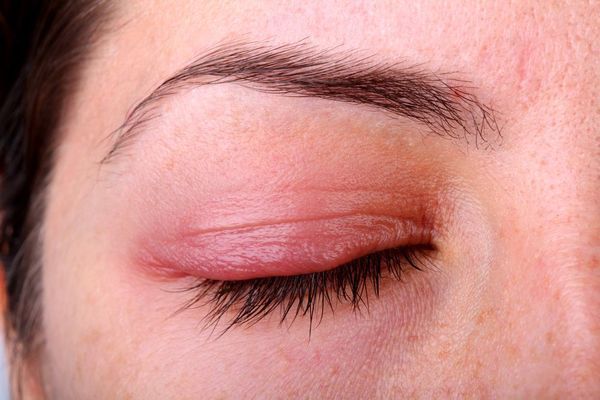Blepharitis: Causes, Symptoms & Treatments

What is Blepharitis
Types and causes of Blepharitis
Anterior blepharitis
Anterior blepharitis is the name given to the condition when the inflammation affects the skin around the base of the eyelashes.Anterior blepharitis is usually caused by one of two things.
- Seborrhoeic dermatitis. This complaint causes the skin to become oily or flaky, blocking the Meibomian glands in the eyelid.
- A reaction to Staphylococcus bacteria, which is usually present but harmless on our skin.
Posterior blepharitis
In patients with posterior blepharitis, the inflammation usually affects the Meibomian glands which are behind the base of the eyelashes.
Posterior blepharitis is normally caused by issues with the Meibomian glands, such as when they become blocked by flakes of skin, debris or bacteria. Occasionally, people who suffer from the skin condition known as Rosacea, will also find they are prone to posterior blepharitis.
Mixed blepharitis
Unsurprisingly, mixed blepharitis is a combination of both anterior and posterior types of the condition.
Symptoms of Blepharitis
- Crusty/greasy eyelashes
- Itchy, sore and red eyelids that stick together
- Increased sensitivity to light
- A gritty or burning sensation in your eyes
- Swollen eyelid margins
- Abnormal eyelash growth or eyelashes that are falling out/failing to grow
Although it is possible for just one eye to be affected, most sufferers find that the condition affects both eyes, although not always equally.
Complication of Blepharitis
Blepharitis itself is not a serious condition. However, if left untreated it can begin to affect your vision. Patients who seek prompt treatment should find that their eyesight is not permanently altered.Complications that can arise as a result of blepharitis can include:
- Conjunctivitis
- Dry eye syndrome
- Styes
- Meibomian cysts
- Damage to the cornea
Treatment for Blepharitis
Dr. Adhoot and his professional team are able to accurately diagnose blepharitis with just a simple, painless examination. Although there is no cure, the condition can be managed effectively to control the symptoms and prevent permanent scarring of the eyelid margins.
The most effective treatment for blepharitis is to follow a daily eyelid cleansing routine, similar to the following:
- Use a warm clean compress to loosen the molecules of the oil inside the Meibomian glands, making it runnier.
- Using clean hands, gently massage the eyelids to push the oil out of the glands.
- Wiping the eyelids with clean, damp cloth to remove oil, dirt and bacteria.
Eye Care at Progressive Ophthalmology
Dr. Adhoot and the team at Progressive Ophthalmology provides high quality ophthalmic treatments and patient care to residents in Sunnyside, Queens and the surrounding metropolitan New York City area. To find out more about blepharitis, or to arrange a consultation with Dr. Adhoot, please make contact with us today.

